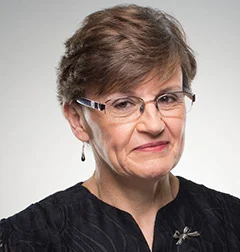
Wills & Estates Newsletter – February 2017
Published on January 31, 2017 by Adelaide Ryan and Josephine Heesh
In this edition our team report on:
- Superannuation changes and their impact on Estate Planning;
- Dying without a Will;
- Elder abuse and the importance of Enduring Powers of Attorney; and
- Our upcoming Free Wills & Estates Seminar at the Mittagong RSL.
The Carroll & O’Dea Wills and Estates Team
Superannuation changes and their impact on Estate Planning
From 1 July 2017, many changes to superannuation laws as envisaged by the Treasury Laws Amendment (Fair and Sustainable Superannuation) Act 2016 will come into effect. In overview, the key changes include:
- concessional cap (limiting how much you can put into your superannuation): reduced to $25,000 pa
- non-concessional cap: reduced to $100,000 per annum (with a restriction on making any further non-concessional contributions if your superannuation balance exceeds $1.6m – subject to future indexation)
- income threshold (where contributions are subject to additional tax for high income earners): reduced from $300,000 to $250,000
- transition to retirement pensions: fund income for TTR pensions to be taxed at 15%
- maximum balance that can be transferred to pension phase: $1.6m limit (subject to indexation)
- CGT relief available for assets in pension phase: restricted by the new $1.6m threshold
- 10% test for deductibility of personal contributions: removed
- anti-detriment deductions: removed
With the majority of these changes reducing the taxation benefits found within the superannuation environment, interest has increased in testamentary trusts (and in particular, testamentary discretionary trusts) as a vehicle to preserve family wealth for future generations.
Josephine Heesh, Partner
Michael Crowe, Associate
Dying without a Will
As the holiday season comes to an end, you may have had discussions with your family about planning for the year ahead. An important part of that plan might be to ensure you have a Will in place.
Quite often, we are asked “what happens if I die without a Will?” In this edition, we explain the rules of intestacy which apply if a person dies without a Will or where the Will does not effectively dispose all or part of that person’s property. The rules are set out in Chapter 4 of the Succession Act 2006 (NSW) (Act).
Josephine Heesh, Partner
Jessica Lobow, Associate
Elder abuse and the importance of Enduring Powers of Attorney
Currently, the Australian Law Reform Commission is conducting an inquiry and report on the existing laws and frameworks which seek to safeguard and protect older persons from misuse or abuse by formal and informal carers, supporters, representatives and others.
According to the Elder Abuse Prevention Unit, the definition of “elder abuse” as adopted by the World Health Organisation and the International Network for the Prevention of Elder Abuse is “a single or repeated act, or lack of appropriate action, occurring within any relationship where there is an expectation of trust which causes harm or distress to an older person”.
Josephine Heesh, Partner
Adelaide Ryan, Solicitor
Free seminar – Wills and Estates
Interested in learning more about Estate Planning and securing your future? Join our Hanaan Indari, Lara Piercy and Michael Crowe for a free seminar at Mittagong RSL on Tuesday, 28 February 2017 at 11am-12:30pm.
For more information and to reserve a seat, please visit our website or contact Evelyn Garnett on 02 4227 1427 or 1800 059 278 or egarnett@codea.com.au.

